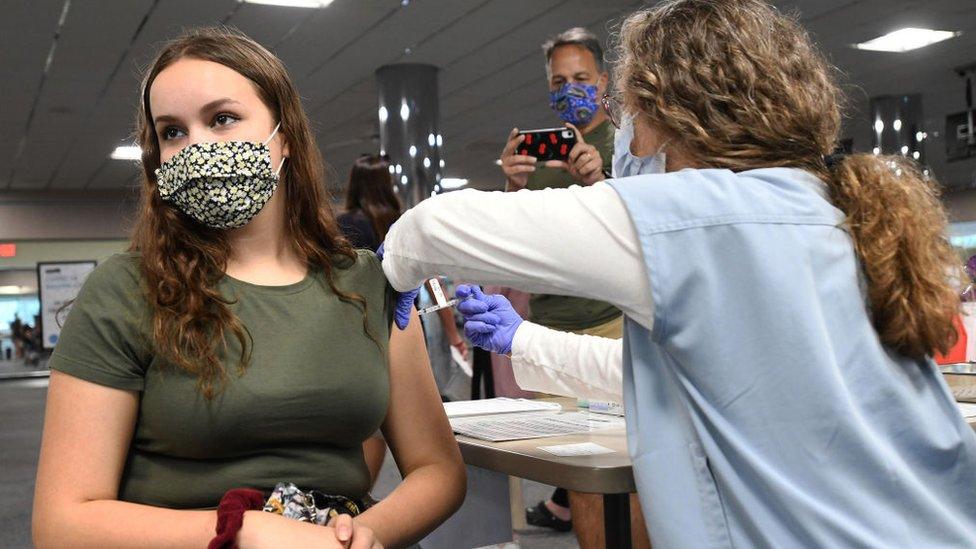Critical care teenager pleads: 'Get the Covid vaccine'
- Published
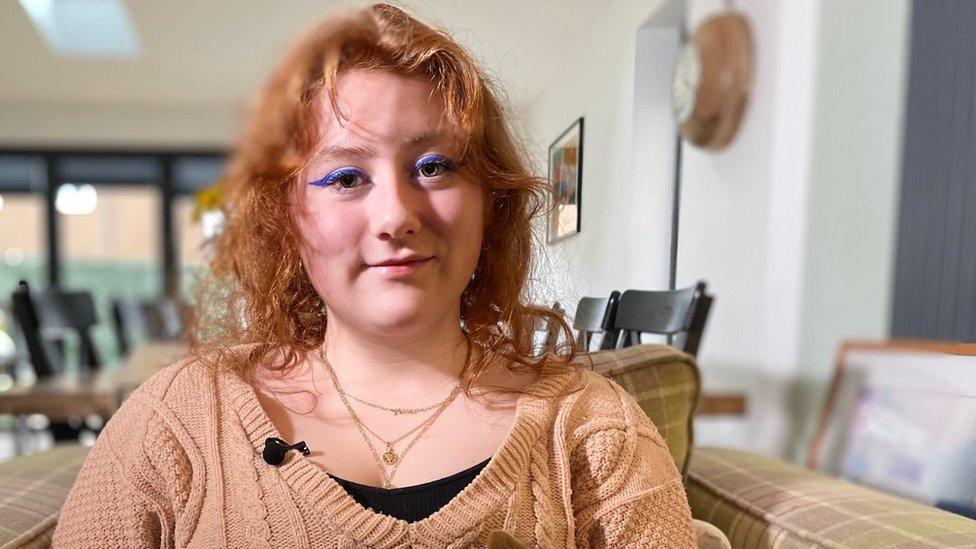
Luci Smith is still recovering from Covid-19 after contracting the virus in July
A teenager from South Lanarkshire who spent a week in critical care with Covid is appealing to other young people to get vaccinated.
Luci Smith, 16, from Cambuslang, was admitted to Glasgow's Queen Elizabeth University hospital last July, just weeks before jabs were offered to her age group.
She needed high levels of oxygen to support her breathing.
And she still suffers breathlessness, hair loss and poor mental health.
The Joint Committee on Vaccination and Immunisation (JCVI) approved vaccines for those aged 16 and 17 in August last year, shortly after Luci contracted Covid.
About 17% of those aged 16 to 29 have still to have a first vaccine, while only 10% have had a booster.
According to new data, one in five Covid patients admitted to intensive care units (ICU) or high dependency units (HDU) in Scotland were under 40 after mass vaccination for older and vulnerable people was established last year. That compares with fewer than one in 10 in the first two Covid waves.
The Scottish Intensive Care Society Audit Group report, external also showed unvaccinated Covid patients were six times more likely to be admitted to ICUs in the third wave, which started in May 2021, than people who had received two Covid-19 vaccine doses.
'Could I die?'
As someone who had never been seriously ill, being admitted to an adult HDU in hospital was a frightening experience for Luci.
"It was just very overwhelming and it was really scary," she said. "I don't really have a bright memory of it but it did come across my mind, 'I could possibly die, am I ready for this'?
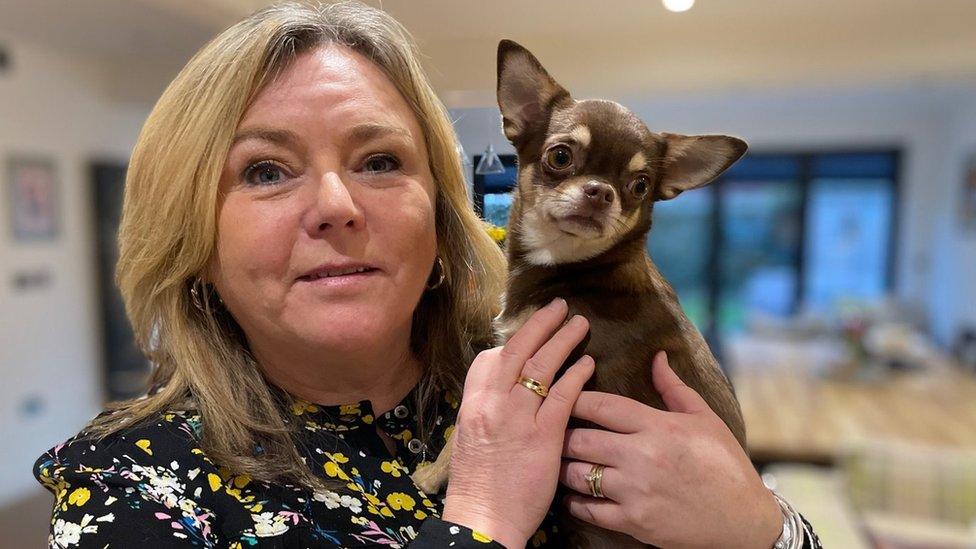
Sharon Smith said the vaccine approval for young people in August was unfortunate timing for her family
Her mum Sharon said having her daughter in hospital, and being told Luci's life was at risk, was traumatic for the whole family.
"It's the worst feeling out there because you've got no control. When your kid is that sick you're just at the hands of the gods, really. But we pulled through."
"The most important part of it is getting the vaccine, and getting the booster if you can," she said.
"We were just really unfortunate with the timing. Luci was only 16, they weren't doing 16-year-olds at that point, and a couple of weeks later she qualified to get it."
Mental health toll
Since leaving hospital six months ago, Luci has recovered enough to return to school part-time, but still has some physical symptoms and her school has provided counselling this term to deal with the after effects of Covid.
She said problems such as hair loss and breathlessness began taking a serious toll on her mental health a month or two after she contracted the virus.
"I think the mental aspect of Covid isn't really spoken about enough because I have been affected quite massively, mentally, from it.
Research shows a third of critical care patients experience anxiety, depression or issues such as flashbacks many months after leaving hospital.
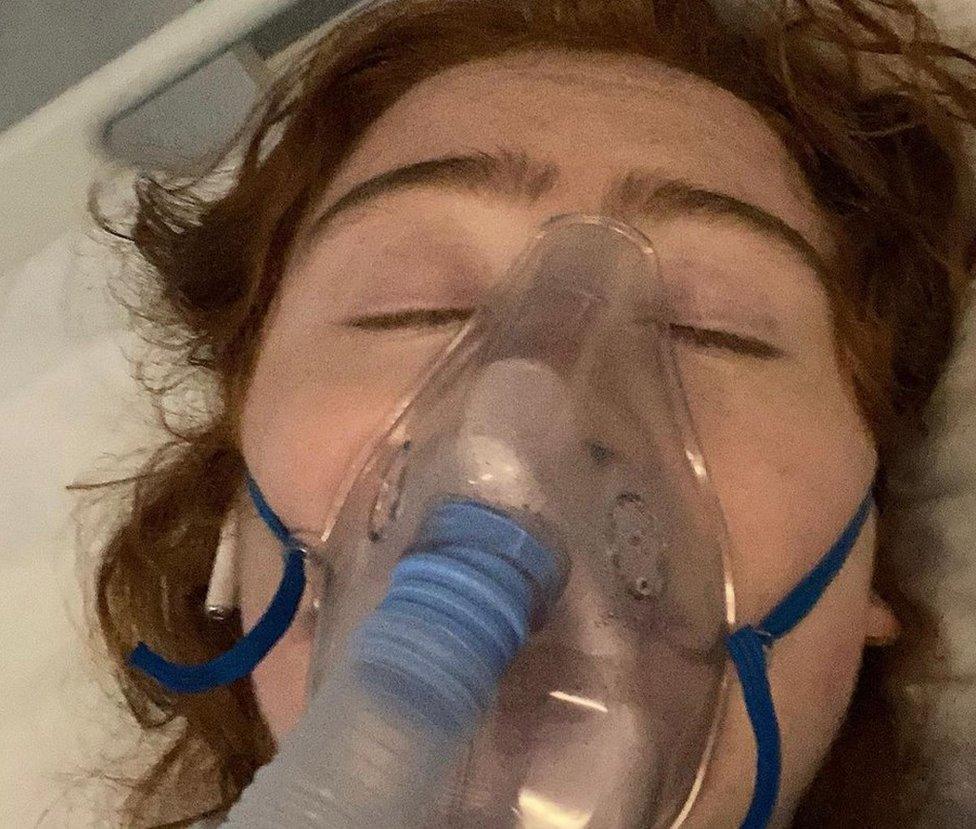
Luci said she was proof that serious illness from Covid could "happen to anyone"
Luci now wants to warn other teenagers that what happened to her could happen to them.
"I wouldn't ever want to take anyone's personal choice away, but I do think it is important to get the vaccine because I think I am proof that it can happen to anyone.
"It makes me feel a bit sad. If more people got their vaccines I think it would be a lot safer for everyone."
According to the latest Scottish Intensive Care report, external, a far greater proportion of patients in ICU and HDU were under 40 after mass vaccination started for older people, with 22% in wave three compared with 8% in the previous year.
Between 1 March 2020 and 9 January this year, 2,933 people with confirmed Covid-19 were admitted to intensive care units in Scotland. More than a third of them (1,087) were admitted during the third wave, which is defined as starting on 18 May 2021.
Unvaccinated people were around six times more likely to be admitted to an ICU with a positive Covid-19 test in the third wave than people who had received two doses of the Covid-19 vaccine.
Of the 75 pregnant woman who were admitted to intensive care units, fewer than five had received either one or two doses of a vaccine. The report showed that 51 of these women were admitted in the third wave, and one died.
'Symptoms can last a year'
Government funding has been given to help Covid survivors deal with their experience in hospital, including grants to ICU Steps, external, a charity with a network of support groups, and the Critical Care Recovery, external online resource.
The University of Dundee's Dr Pam Ramsay, the co-creator of Critical Care Recovery, said physical and psychological recovery after ICU in particular was "very complex".
"All of these problems can really interfere with patient's everyday lives, and for some patients these symptoms can last up to a year, and sometimes longer," she said.
"We don't yet know whether patients who have been in intensive care with Covid will have more severe forms of some of these problems."
Dr Ramsay added: "I think clearly more people need support than we have the the resources to provide it.
- Published1 July 2022
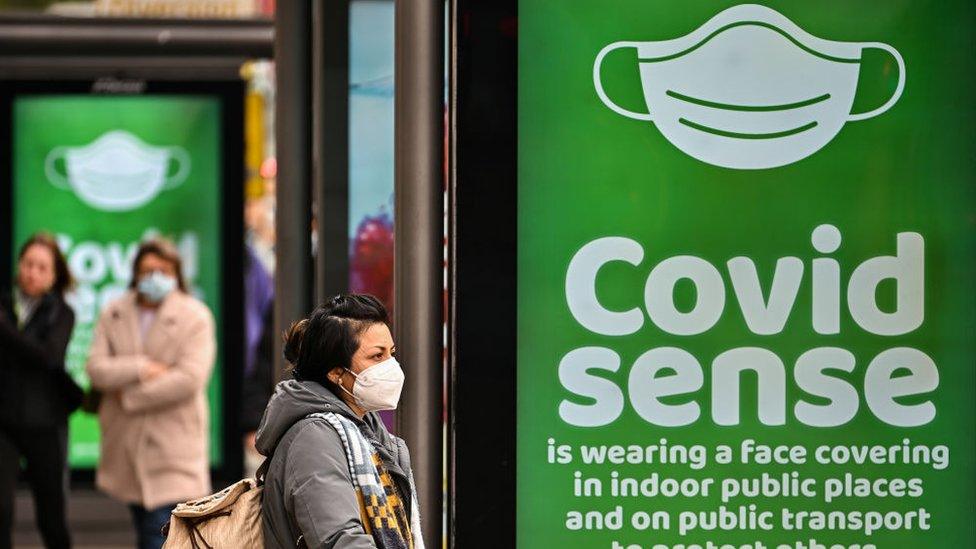
- Published1 February 2022
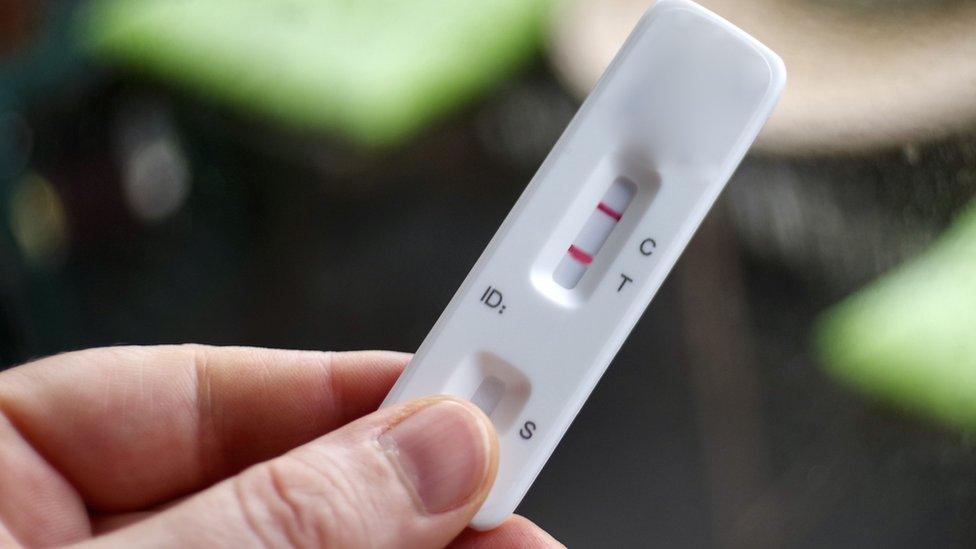
- Published4 August 2021
